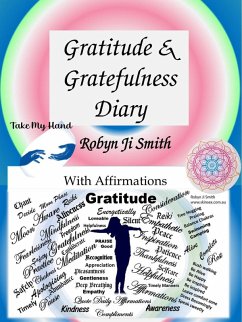List pages that ask you questions and prompt you such as-
Affirmations
How to set and atchieve goals.
A Happy Mind Plan
I Commit To Being Marvelously Alive List.
Am I on track? . Am I on track with my healing plan check list and more information to prompt you into a more contented with yourself life plan.
Gratitude and the brain
Neural mechanisms that are responsible for feelings of gratitude have grabbed attention (Wood et al., 2008). Studies have demonstrated that at the brain level, moral judgments involving feelings of gratefulness are evoked in the right anterior temporal cortex (Zahn et al., 2009). People who express and feel gratitude have a higher volume of gray matter in the right inferior temporal gyrus (Zahn et al., 2014).
Gratitude and neurotransmitters gratitude as a 'natural antidepressant'. The effects of gratitude, when practiced daily can be almost the same as medications. It produces a feeling of long-lasting happiness and contentment, the physiological basis of which lies at the neurotransmitter level. The limbic system is the part of the brain that is responsible for all emotional experiences. It consists of the thalamus, hypothalamus, amygdala, hippocampus, and cingulate gyrus. Research has found that gratitude can activate the hippocampus and amygdala, which are responsible for emotions, memory, and bodily functions.
Dieser Download kann aus rechtlichen Gründen nur mit Rechnungsadresse in A, B, CY, CZ, D, DK, EW, E, FIN, F, GR, H, IRL, I, LT, L, LR, M, NL, PL, P, R, S, SLO, SK ausgeliefert werden.









